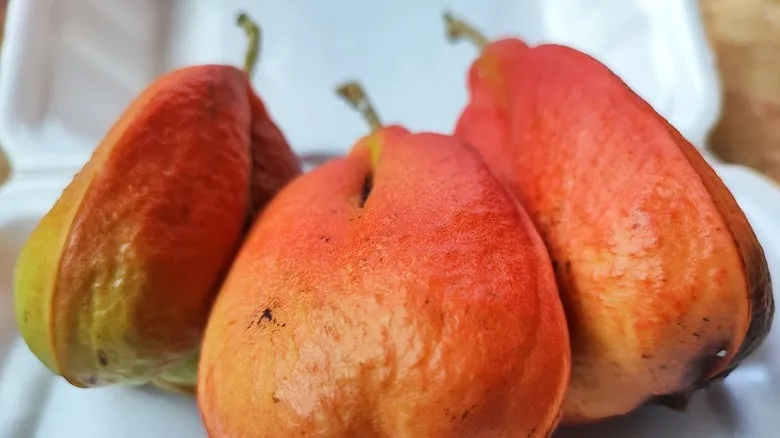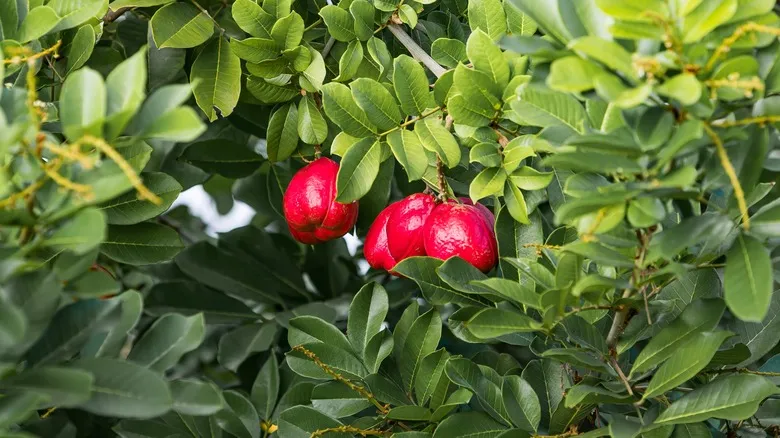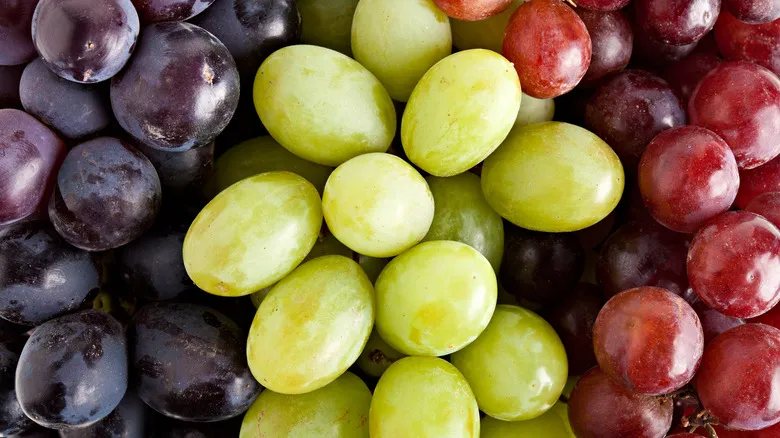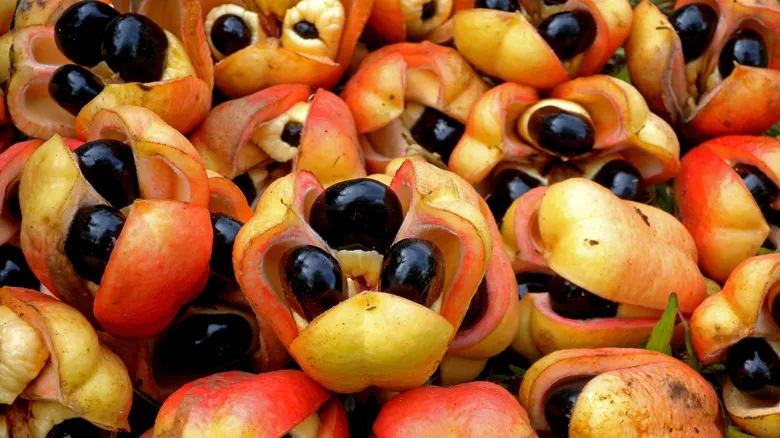Unripe ackee has a potentially lethal toxin, hypoglycin A

The unripe portion of ackee contains significant levels of hypoglycin A, a harmful toxin. The FDA categorizes this toxin as "heat stable," indicating that it can endure the cooking process. Since the toxin remains intact even at high temperatures, it poses a greater health risk.
Moreover, the fruit's skin and seeds are also unsafe to consume due to their hypoglycin A content. According to the FDA, ackee can have up to 100 parts per million (ppm) of hypoglycin A and still be considered safe to eat; however, levels exceeding this limit are hazardous. The total amount of the toxin in the fruit varies with ripeness, but the skin and seeds consistently contain high concentrations of hypoglycin, even in fully ripened ackee.
The FDA states that the ripened and "properly processed" parts of ackee are safe for consumption. As the fruit ripens, it changes from pale green to various shades of yellow, orange, and red. Ackee is deemed ripe when the skin naturally splits open to expose the edible pale yellow arils, which contain hard, dark seeds. If the fruit remains closed or the arils appear discolored, it is unsafe and toxic. Additionally, any ackee that has been artificially ripened is also dangerous, so it is advisable to use this ripening method only for fruits like mangoes and avocados, not ackee.
Immature ackee contains toxins that cause several symptoms

When ackee is consumed before it ripens, it can pose serious health risks. The unripe fruit can cause low blood sugar, or hypoglycemia, along with other dangerous complications that impair the body's normal functioning. Symptoms of hypoglycemia may include confusion, dizziness, headaches, seizures, and even comas, which can lead to long-term health issues.
Eating unripe ackee can also result in liver damage and severe vomiting. The FDA cautions that both unripe and ripe ackee are highly unsafe for pregnant or breastfeeding women, regardless of the quantity consumed. Children are especially at risk from the harmful effects of unripe ackee and should never eat it in that state. Additionally, there is insufficient reliable information regarding the effects of ripe ackee on pregnant women and children, prompting the FDA to recommend a cautious approach. As many people prepare ripe ackee or enjoy it as a delicacy with fish in tropical regions, it is crucial to be aware of these potential dangers.
Recommended

The Scientific Reason Bacon Tastes Good With Everything

Fresh Herbs That Will Elevate Your Lemonade

Why You Don't Have To Worry About The White Stuff On Grapes

Why Swiss Cheese Is So Holey
Next up

